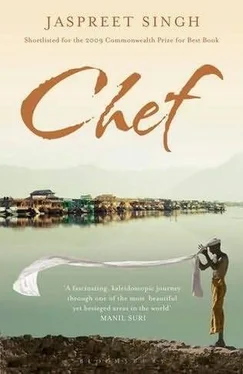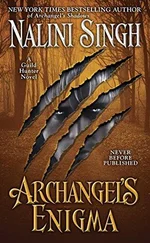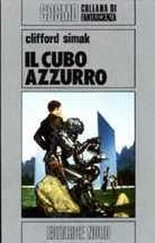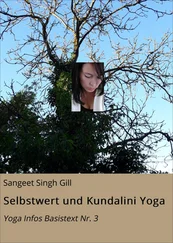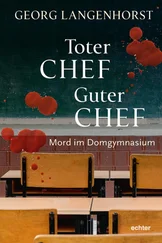When I think about my past, time begins flowing in a different way and my thoughts turn to the mountains of Kashmir, and to the river that begins at the toe of the glacier.
The river begins in India, crosses the border and flows into the enemy territory. In Pakistan time is half an hour behind India, and the moment the river crosses the border it moves backwards in time. But three or four mountains away it re-enters our side, becomes Indian again, and by doing so moves forward in time. This crossing of borders keeps happening over and over again.
General Sahib was the chief of Northern Command. He resided in the second biggest house in the capital city, Srinagar. From the slopes of the camp the river looked like a blue-skinned python flowing through the valley. There were nine bridges spanning the waters: the first was called Zero, and the second Bridge Number One and the last Bridge Number Eight. Not far from Zero Bridge was the old city with timber-framed houses and crowded bazaars and pagoda-shaped mosques. The most famous mosque was white, made entirely of marble, and it stood next to a green Sufi shrine. At the outskirts of the city were the ruins and the Mughal garden built by the Emperor in the seventeenth century. Our camp sat next to the garden on the slopes of a hill. Between the ruins and the camp was an eighteen-hole golf course and on its left was another hill with a white mansion on top. This was the Governor’s residence, the Raj Bhavan, the biggest house in Srinagar. The Governor, I heard, loved international cuisine and once or twice (before my arrival) Sahib had loaned Chef Kishen to him.
General Sahib ate breakfast at six-thirty in the morning. Two days a week papaya and stuffed aloo-parathas (which he ate with his hands), and the rest of the time English breakfast of the Raj (with knife and fork). Lunch he ate in the office. We sent hot tiffin to his office building through the orderly.
The kitchen window faced the golf course, and I would watch Sahib play in the evenings with other officers, and on occasions with the Governor himself. Often I worried for them because we were so close to the land of the enemy. On the right side of the golf course, across the river, was a little village, and beyond the village, on the blue mountains, was the enemy. Often fighting would start on the brown mountain, which belonged neither to us nor to them. The sound of machine guns would rebound in the valley and invade our lives. But then the guns would stop for a while and the delicious sounds of bugles and military bagpipes from our camp and the enemy camp would waft inside the kitchen, and mix with the sounds of coals in the tandoor.
Dinner was the main meal of the day. Sahib had good taste and appetite and a weakness for Kashmiri dishes. Mughlai mutton with turnips, rogan josh, kebab nargisi, lotus roots-n-rhizomes, gongloo, karam saag, the infinitely slow-cooked nahari, and the curd-flavored meatballs of gushtaba. He ate these dishes licking his fingers, and used knife and fork for foreign preparation only, for dishes from Italy, France, Spain, Greece and Russia.
Since Chef had received training at foreign embassies in Delhi, international cuisine was his greatest strength. But he taught me mostly to subvert those recipes. ‘Foreigners have colonized us for a long time, Kip. Now it is our turn. We will take their food and make it our own…
‘Pay attention to simple things, Kip. If one cannot deal with a simple dish properly, there is no way one will be able to handle the more sophisticated. Take a tomato, for instance. What is the taste of this tomato? There is no such thing as the set taste of a tomato. Taste lies in the surface, the way you cut it…
‘Before cutting a tomato, give it the reverence it deserves and ask: Tomato, what would you like to become? Do you want to be alone? Or do you prefer company? Apricot, what would you like to become? Would you like to become more than yourself in the company of saffron?
‘Saffron, who are you?’
The kitchen opened onto a smaller room. In that room I would skin chickens, peel battalions of potatoes, slice chilies, and pluck coriander leaves off stems. Connected to this room was a larger room. There we ate or played cards and had meetings at the wooden table with Chef. Spitting was forbidden in this room.
Chef began work at six in the morning, and two days a week he would invite me in the evening to bike with him along the river. Calling Kashmir paradise does not do justice. The first PM of our country once said (in English): Kashmir is the face of a beloved that one sees in a dream and that fades away on awakening. Nehru knew Kashmir better than the leaders nowadays. Chef and I would bike past the Nehru Memorial, past the bakery on Residency Road, past Zero Bridge, past hundreds of houseboats with names like Neil Armstrong, Cleopatra, Texas Spitfire, Dawn of Paradise, Heevan, past the Dal Lake Floating Market, where vendors of fruits and vegetables sat in motionless shikaras, and the smell of fresh produce mingled with the odor of defecation, and we would make a loop and bike back to the Mughal garden, and it was there on the slopes of the garden one day he put his arm around my shoulder and pointed to the buildings in the valley below. State Assembly. Cricket Stadium. Post Office. Mughal Fort. Radio Kashmir. Governor’s mansion. The city. It was a compact medieval city, punctuated by modern buildings and ancient ruins. Buddhist ruins. Hindu ruins. Muslim ruins. I was very moved by their presence.
‘It is difficult to breathe here,’ said Chef.
‘Because of the ruins?’ I asked.
‘No, because there are so many mosques here. Understand?’
‘No,’ I said.
‘You see that white marble building by the lake?’
‘Yes, Chef.’
‘Guess what?’
‘Looks like a mosque. But it has only one minaret.’
‘In that mosque some dangerous Kashmiris meet to create trouble.’
‘Trouble?’
‘They talk about azadi. Freedom.’
‘I see, Chef.’
‘Lots of mosques down there.’
‘The place looks like the city of mosques, Chef.’
‘Fanatics!’
‘Even inside our camp, Chef. On the left, I see that stone mosque.’
‘No longer a mosque. The army converted it to good use. It is the military hospital, kid.’
The hospital windows (and the dome) were lit up orange by the last light. The sun was about to set.
‘I am feeling cold, Chef.’
‘There is a remedy,’ he said.
‘Remedy?’
‘Get yourself a phudee.’
‘A what, Chef?’
‘A cavity.’
‘What for?’
‘Get yourself a woman.’
I shut my eyes. The wind whistled between the mountains.
‘Chef, you should not say that.’
‘Get yourself -’
‘Chef, what does this city look like in winter?’
‘A white calico,’ he said. ‘Snow covers all the rooftops and streets down in the valley and hides all the ungainly parts, just like a sari hides the ungainly parts of a wom -’
‘White, the color of mourning,’ I stammered.
‘Kip, no more mourning-forning,’ he said.
‘What is that?’
‘You need a woman.’
‘Chef, in summers are there mosquitoes in Kashmir?’
‘Mosques and mosquitoes.’
‘What?’
‘The mosques we can manage, but we are still learning how to eradicate the mosquitoes.’
‘How does one eradicate?’
‘Hit them in the balls.’
‘Chef is joking.’
‘There is another way. If you make them fly out of the mosques, the wind will freeze their balls. You see the flags outside the mosques? Sometimes they flutter like insane creatures in the wind. Cold winds come from the glacier and madden them.’
‘Where is the glacier?’ I asked.
He pointed towards the distant mountains on my right, and my gaze remained fixed on the glaring whiteness that covered them.
Читать дальше
Конец ознакомительного отрывка
Купить книгу
